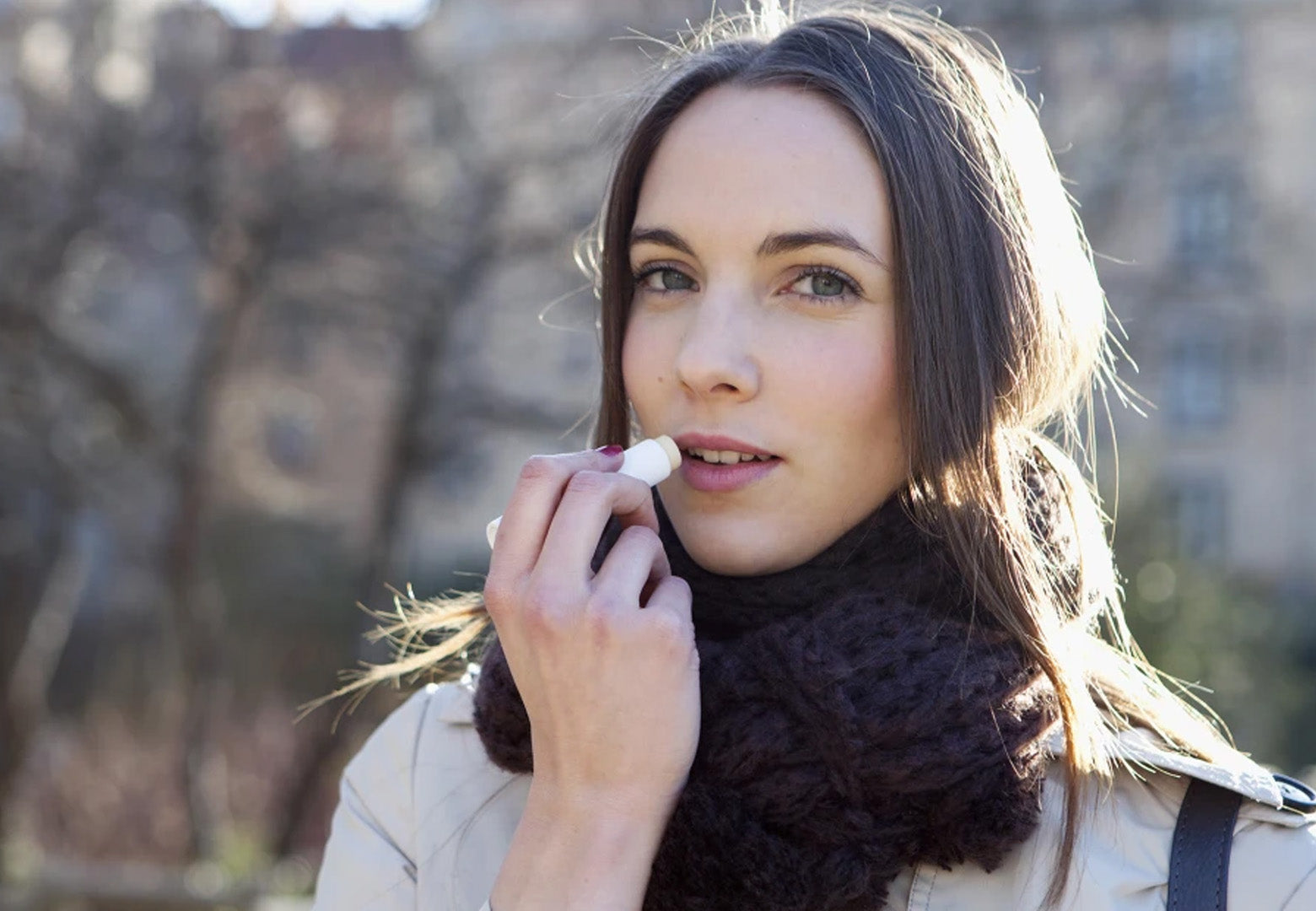
What Causes Chapped Lips and How to Treat Them
We all hate chapped lips. Errr, so annoying and difficult to live with any time of the year.
But what causes chapped lips and what do we do about them?
It is coming into summer in Australia which means sun, the outdoors, wind and rain.
So, I thought it was a good time to talk about protecting our lips!
What causes chapped lips?
Why are my lips so dry, you may ask?
The skin on our lips is delicate and thin.
Chapped, cracked or dry lips can be caused by a few common and not so common factors:
- Sun exposure;
- Excessive licking of the lips;
- Salty or spicy food – bummer salt absorbs water so no chips;
- Dehydration
- Malnourishment or vitamin deficiencies;
- Vitamin A, retinoids; and
- Medications such as lithium (sometimes used to manage bipolar disorder), Accutane, Antihistamines and chemotherapy drugs.
Did you know, lips don’t have oil glands like other parts of your skin. Consequently, lips are susceptible to drying out and becoming chapped or even cracked. A dehydrating environment can make things even worse, whether outside in the sun and wind or inside in the air-conditioning.
Habitual licking or ‘lip licker’s dermatitis’ is another dry lip cause which may be due to anxiety or dehydration. Saliva from licking does not hydrate but actually further strips the lips of moisture, causing a vicious cycle of dryness, ouch!!
Symptoms of chapped lips
Understanding these chapped lip causes, you may experience any of the following symptoms on or around your lips:
- dryness
- flaking
- swelling
- cracks and even bleeding
How to prevent chapped lips
Don’t panic, there are a few simple rules for protecting your lips from the elements:
- Firstly, make sure that your lips have enough moisture, by:
- applying a good quality lip balm as required throughout the day. Remember, myths about lip balm being addictive are rubbish but that is another story;
- drinking more water at least until your lips settle down
- avoiding really hot, cold or windy conditions
- Be conscious of licking your lips and stop.
Licking your lips only dries them out more and rubbing them irritates and inflames the problem further;
- Sun exposure is a big cause, especially as you age, so use a lip balm with sunscreen and wear a hat. This will help keep your lips from drying out and becoming parched;
- If you are prone to irritants, steer clear of potential culprits such as cosmetics with perfumes, dyes, or fragrances.
In fact, American Academy of Dermatology (AAD) gives a long list of ingredients to avoid while your lips are chapped:
- Camphor
- Eucalyptus
- Flavouring: Cinnamon, citrus, mint, and peppermint flavours can be especially irritating to dry, chapped lips
- Lanolin
- Menthol
- Octinoxate or oxybenzone
- Phenol (or phenyl)
- Propyl gallate
- Salicylic acid
- Keep objects away from your face. Especially, avoid holding items made of metal such as paperclips, jewellery or pens as the metal can irritate your already sensitive lips.
How to manage chapped lips
Fortunately, chapped lips can usually be easily managed.
If you already have dry and cracked lips you can help the natural healing process by:
- Gently exfoliating using a gentle scrub with your fingertips. The rough outer layer of skin will start to peel so be very careful not to overdo it as you can easily make matters worse.
- Follow with a moisturizer to stop your lips from drying out. I would reach for a product you know well and which is fairly benign (paw paw cream can work here).
- The AAD also provides a list of ingredients that can help heal chapped lips:
Pure Colour Lipstick with Camellia, Jojoba, Damask Rose & Shea Butter
When to seek medical treatment
It’s common sense to say that if severe dryness and cracking persists, you better see a dermatologist. Cheilitis is often to blame for severely chapped lips and is often attributed to infections and inflammatory diseases.
Indications you may need advice include:
- Bleeding;
- Lips turning dark pink or red in colour
- An unusual lumpy texture
- Ulcers
- Development of white plaques on the surface
I have always used a lip balm and often carry one in my handbag, for emergencies. When I cleanse my face at night, I lightly exfoliate by swiping my face cloth or using our Glow system lightly over my lips. I also always apply lip balm just before I go to sleep.
Sylvie xx



